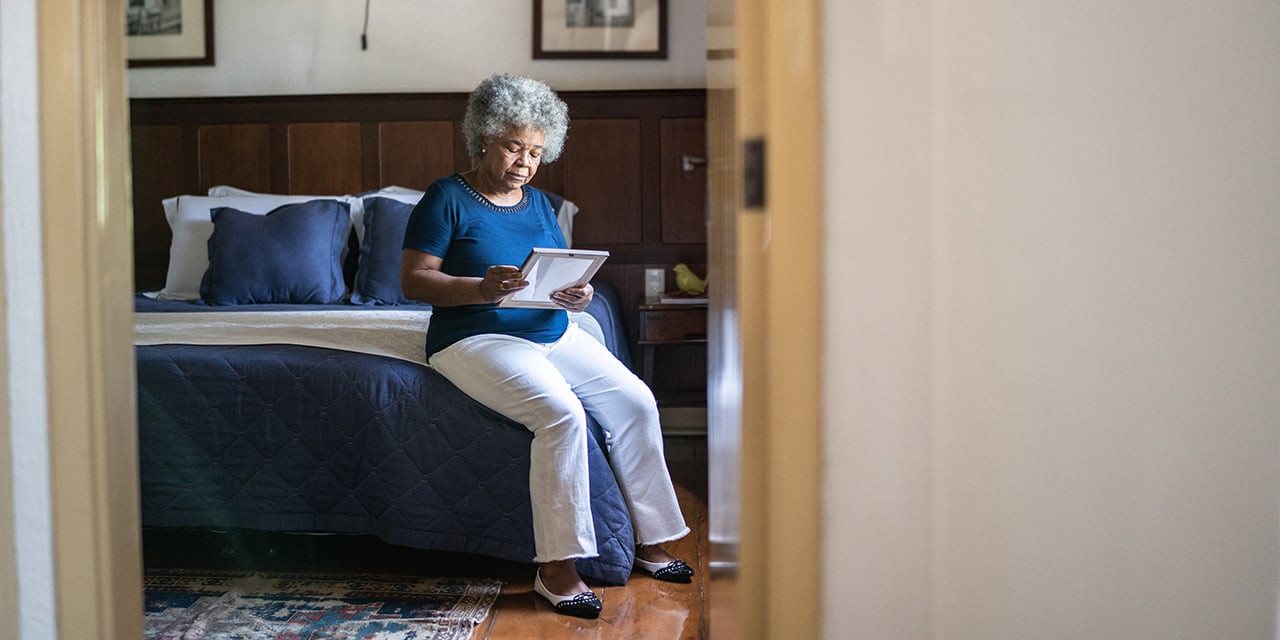
The Last Woman Standing
Preparing now to be a surviving spouse will ease your burden after your life gets more difficult.
Preparing now to be a surviving spouse will ease your burden after your life gets more difficult.
Women of today fill many roles: significant other, mother, professional, volunteer, friend, advocate, mentor, and much more. Women are expected to assume not only the roles of their matriarchs but their patriarchs as well. Because of these demands on women’s daily lives, it is almost impossible for them to find time to plan for their future. It’s vital to understand why and how women can catapult planning for the future from the bottom of their endless to-do list to the top!
Why is it important for women to take control of planning for their future?
The U.S. Census Bureau reported in 2019 that the average age of a widow is 59, with nearly 2,800 women becoming widows every day. Even with normal life expectancy, women outlive their male counterparts by five years (CDC Vital Statistics Division, posted by CNN, March 2021). Couple these stats with a Gallup poll from 2018 that indicated 55% of people do not have an estate plan, and you have a scenario that leaves many women alone at a time when they are likely still working and raising a family - without a succession plan. So it’s more important than ever for women to engage in planning to create a path for achieving their personal financial goals and how their wealth will pass to the next generation.
What does “planning for the future” involve?
Planning for the future can be viewed from different angles. One is planning financially for the future, deciding what you will need to achieve goals that require financial resources. Some goals may be short term, such as buying a home or paying for college expenses, while others are longer term, such as living comfortably in retirement or purchasing a vacation home. Another form of planning for the future is succession or estate planning, planning how assets will transition and be utilized when the owner is unable to do so. Examples might include determining how to transition a business or how remaining wealth will benefit the next generation or charities. This also involves selecting who takes over certain duties if an individual becomes incapacitated or passes away, such as a power of attorney or trustee. Today, if someone passes away without an estate plan, their assets transition according to the state laws of intestacy.
One important factor that most individuals don’t contemplate: practical matters of succession. There is a gap in the daily responsibilities that results from losing a spouse. People in a long-term committed relationship divide certain responsibilities, including paying bills, investing, cooking, property or car maintenance, etc. Consider property maintenance, which could entail overseeing the trash service, landscaping, sprinkler system, lawn care, heating and air units, electrical work, alarm system, insurance, or repairs. The details of the maintenance and professional service contacts may only be known by one spouse.
As a trust officer, with over 25 years of experience the industry, many of the surviving spouses I work with are women. I have witnessed the emotional discord of the surviving spouse not only from the loss of the person, but also the stress of scrambling to manage the responsibilities of their late spouse while they are grieving. As a result, most do not make informed decisions, pay too much for services, take on too many tasks or neglect them because they don’t know what to do and won’t ask for help. This can have a major effect on their health.
How do women prepare themselves for the future?
- Make planning a priority! To make anything a priority, it must provide value to the person prioritizing it. Why is planning for the future an important priority for women? Aside from the statics shared earlier in this article, perhaps it is to protect and support others who would be vulnerable without them, or the thought of being alone, left with the burden of all the accumulating daily responsibilities. Proper planning can ensure their priorities for the future are set in motion while preserving and protecting wealth for family.
- Engage in fact finding. Women should know and understand their financial picture. If they have left those details to their spouse, exploring their net worth and cash flow statements is a good place to start. This information can be used to complete a financial plan with a professional; if you have completed one in the past, it is wise to update it every other year to examine estate projections and review wealth succession plans.
- Determine how the estate will benefit others. Couples should discuss who they want their estate to benefit and how. Who would care for the children or pets if they pass prematurely? Married couples have certain legal rights to assets; unmarried couples do not have legal rights to inherit solely owned assets of their partner and no right to make medical or personal decisions without estate planning documents in place. Baird’s estate planners can help clients understand options to consider in preparation for meeting with an attorney to draft their estate planning documents.
- Cross-train each other and document. Couples should make a list of items or information they rely on their spouse or significant other to manage. If one person manages the financial matters, learn what the other knows, including the location of files that contain essential information and contacts. If home maintenance is a mystery, take a notebook and the “handy-spouse” on a tour. Identify what they do and when to maintain the property, where they get supplies and who to call when a professional is needed. After all this impactful work, organize important documents and information in an accessible location that is easy to carry in an emergency.
Women are vital members of families and society! Women inherently take care of others and often neglect themselves. Since it is likely that women will outlive their male partners, proper planning today can help women and those most important to them in the future. It is time women prioritize themselves and move the critical task of planning for the future to the top of the “Must Do” list!
You don’t have to be an expert. Let us help! Contact your Baird Financial Advisor TODAY to start the planning process.


